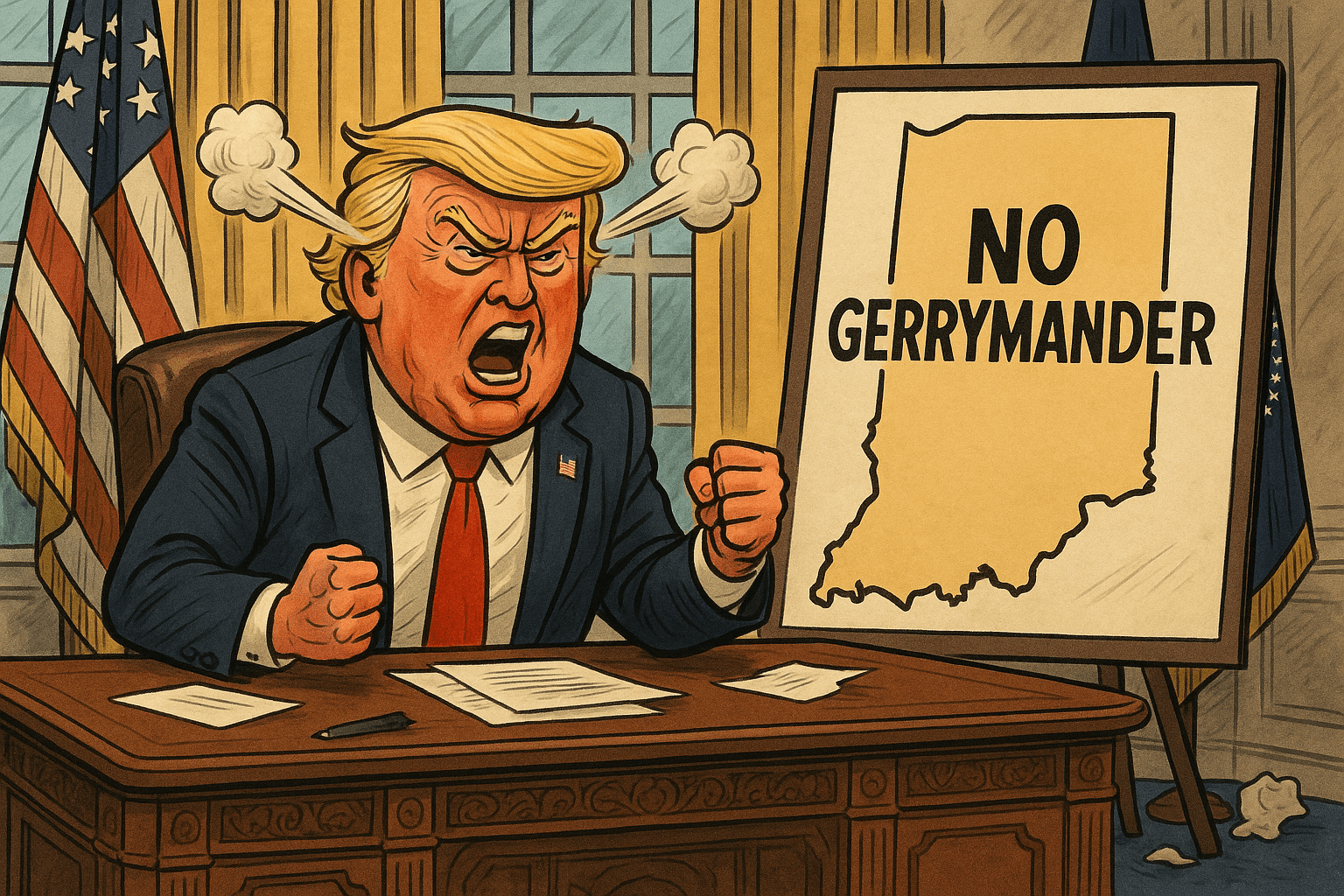Voters v. The Legislature: Who Will Decide the Fate of Ranked Choice Voting in Michigan?

Rank MI Vote is gathering petition signatures for an amendment to the Michigan constitution that – if approved by voters – will allow voters who cast a ballot for president, Congress, governor, and more to use ranked choice voting instead of marking just a single candidate.
The amendment will also guarantee cities that have already moved to adopt the reform can honor the will of their voters.
Rank MI Vote hopes to put the amendment on the November 2026 ballot just as state lawmakers have moved to ban RCV entirely, setting up a showdown between reformers who offer more choice to voters and partisan interests that say the reform is “too confusing.”
The effort by Rank MI Vote has seen an increase in media attention as a result.
What Does the Amendment Do?
“[This] constitutional amendment will put ranked choice voting into Michigan’s constitution for major offices and allow its expansion to other offices and local offices as well,” said Pat Zabawa, executive director of Rank Mi Vote.
What his organization has proposed does multiple things in relation to rank choice voting and has a three-phase implementation plan.
First, it adds RCV to elections for president, U.S. House and Senate, governor, attorney general, and secretary of state starting in 2030 (or the first election after 2030). So, for president, it will be used for the first time in 2032.
Under RCV, voters have the option to rank candidates in order of preference. If no candidate gets a majority of first-choice votes, the last place candidate is eliminated, and their voters’ next choices are factored into the results.
Subsequent elimination rounds (or instant runoff rounds) are held until a single candidate has a majority.
This would be a significant change to Michigan elections as many state and federal contests in recent years have ended with no candidate getting a majority. For example, in 2024, President Donald Trump won with 49.7% of the vote.
Democrat Elissa Slotkin won the U.S. Senate race with 48.6% of the vote compared to Republican Mike Rogers who received 48.3% of the vote. Ranked choice voting would have allowed Michiganders who voted for a third-party candidate to decide which of the two major party candidates they preferred.
And – they would have determined a majority winner.
Advocates of RCV argue that while the major parties decry spoiler candidates each election cycle, their reform would allow voters to fully express their preferences for the candidates on the ballot while eliminating the “spoiler effect.”
Rank MI Vote’s amendment also makes additional elections eligible to use RCV, including races for Michigan Supreme Court, the state legislature, state board of elections, and university boards. And, it will remove barriers blocking local municipalities from implementing the new voting method.
“In Michigan, the city of Ferndale voted to utilize ranked choice voting,” Zabawa said. “Since Rank MI Vote started, we ran campaigns in Ann Arbor in 2021, East Lansing, Kalamazoo, and Royal Oak – all of which won and succeeded.”
However, he explained that the Michigan Bureau of Elections has interpreted constitutional law as it exists now to mean that no city in Michigan can run RCV elections. Zabawa pointed out that this interpretation comes even though RCV was used in Michigan up to the 1970s.
But there’s more.
Rank MI Vote’s amendment also moves up primary election dates “so that voters and clerks have more time between the primary and general election to prepare,” according to the organization, and enshrines other voter protections into law like the right to a paper ballot.
Voters Could End Up Overturning a Statewide Ban on Ranked Choice Voting
The Michigan House recently approved a bill, House Bill 4707, to ban ranked choice voting for local, state, and federal elections, despite the growing number of cities that have approved its use in recent years.
The bill’s sponsor, Republican Rep. Rachelle Smit, has used a standard argument against RCV’s use, claiming that it is too confusing and said it “only breeds skepticism – especially when every close contest invites lawsuits and recount battles.”
She further argues that RCV is a “logistical nightmare” and “creates serious confusion at the ballot box.”
Notably, there are more than 50 jurisdictions in the U.S. that use RCV, including two states – Alaska and Maine. These jurisdictions represent roughly 14 million people from California to Utah to Minnesota to Washington DC and more.
Exit polls in these jurisdictions don’t reflect claims of widespread voter confusion. For example, 84% of Alaskans believe RCV is “simple.” In Maine, 57% of voters have said they like being able to rank their options on the ballot.
If the Michigan Senate approves the RCV ban and the governor signs it into law, Michigan would become the 14th state to ban the voting method. However, if Rank MI Vote’s amendment qualifies for the ballot and is approved by voters, the ban will be overturned.
Thus, the question is: Who will decide the fate of RCV in Michigan – lawmakers or voters?
 Shawn Griffiths
Shawn Griffiths






